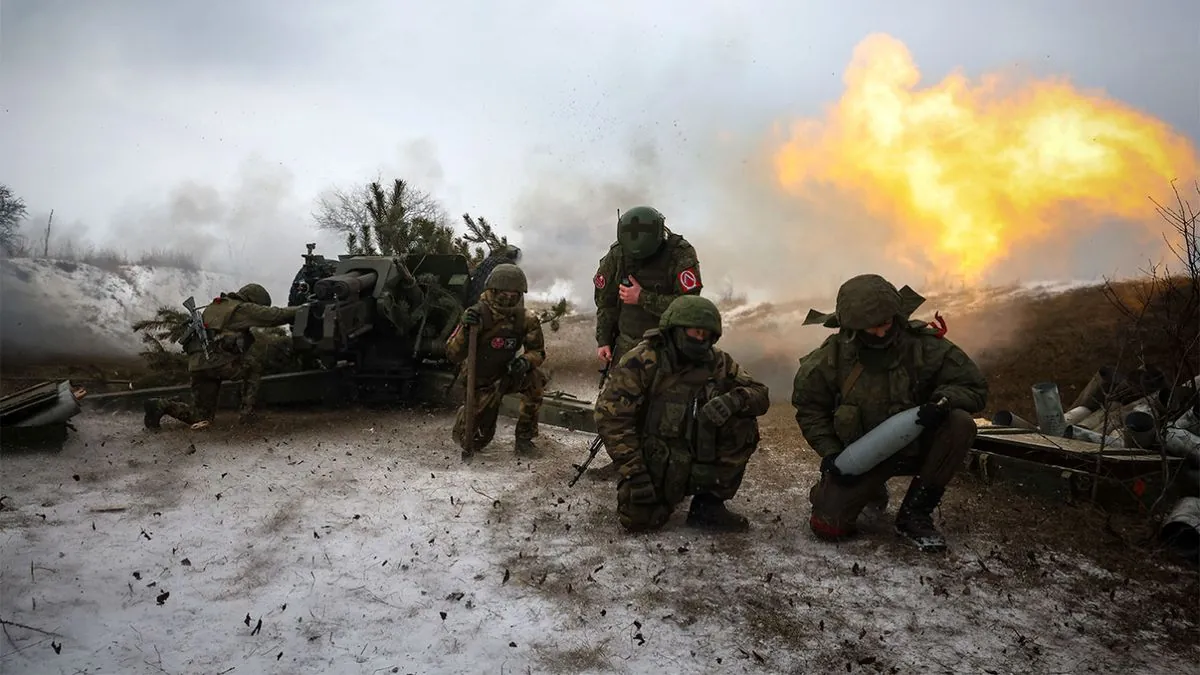Russian forces have made significant progress in eastern Ukraine, particularly in the town of Vuhledar. This coal-mining settlement, established in 1964, has become a focal point of the ongoing conflict. The town, whose name translates to "coal gift" in Ukrainian, symbolizes the resource-rich Donbas region's strategic importance.
Reports indicate that Russian troops are employing aggressive tactics to capture Vuhledar, which has remained under Ukrainian control since the conflict began in February 2022. The town's proximity to Donetsk, a major city under Russian-backed separatist control since 2014, adds to its strategic value.
Russian military bloggers claim that their forces have entered Vuhledar and initiated a storming operation. The situation is described as critical by Ukrainian sources, who report intense artillery bombardment and the use of glide bombs. These weapons, first developed during World War II, have become a significant part of Russia's arsenal in this conflict.
The use of glide bombs has reportedly expanded beyond the Donbas front and the northern city of Kharkiv, Ukraine's second-largest urban center. Recent reports suggest their deployment against Zaporizhzhia in southern Ukraine, home to Europe's largest nuclear power plant.
Concurrent with the military advances, a leaked draft of Russia's 2025 federal budget reveals a substantial increase in defense spending. The plan outlines a 25% rise to 13.2 trillion rubles, equivalent to approximately £106 billion. This figure represents about 6.2% of Russia's GDP and 40% of total government expenditure, significantly surpassing the UK's annual defense budget of roughly £50 billion.
Analysts, including Alexandra Prokopenko, a former Russian Central Bank advisor and current fellow at the Carnegie Russia Eurasia Center in Berlin, interpret this increase as preparation for a prolonged conflict. The Kremlin appears to prioritize military objectives over civilian needs, with reports of factories being repurposed for military production.
"Russian units have entered Vuhledar. The storming of the town has begun."
The Russian military is also intensifying its recruitment efforts. Recent announcements indicate plans to expand the army by 180,000 personnel, bringing the total to 1.5 million. This drive is fueled by patriotic sentiment following Ukraine's incursion into the Kursk region, marking the first invasion of Russia since World War II.
However, the British Ministry of Defence, established in 1964, presents a stark assessment of the Russian military's situation. They describe Russian soldiers as "cannon fodder," a term originating in the 19th century, and liken the army to a factory assembly line leading to casualties. The ministry estimates that Russia has suffered approximately 610,000 casualties since the invasion began, with daily losses averaging 1,100 soldiers over the past four months.
As the conflict approaches its third year, the situation in eastern Ukraine remains volatile, with both sides incurring significant losses in what has become a war of attrition.
